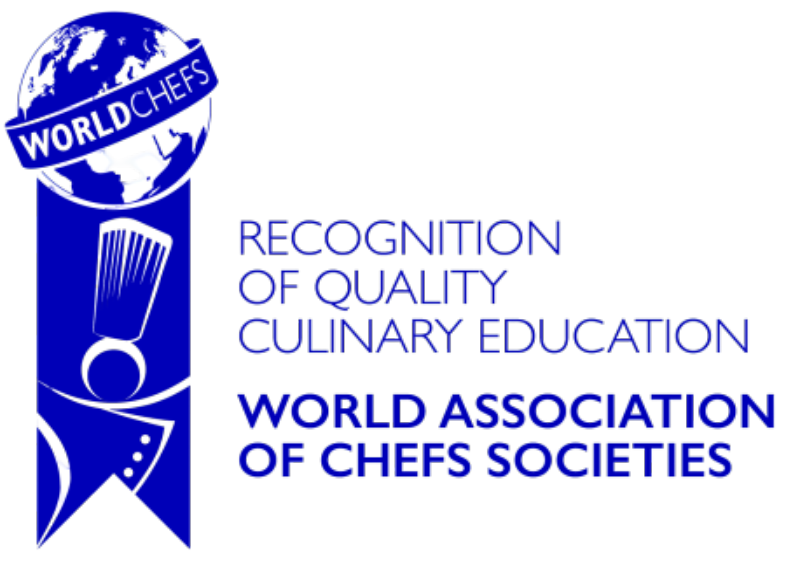5 Things to Know about the Evolving Culinary Industry
Looking for a fulfilling career doing something you love? The culinary industry is huge, encompassing much more than just restaurants. At DIG, we’re looking for ways to help people get off to the strongest start possible—especially women.
1: Women Dominate Kitchens—Just Not Enough in Professional Ones.
If you could have anyone make you dinner, who would you choose? For many people, the answer is a woman.
“Mom, Grandma: These are some of the greatest cooks of our lives,” says Amanda Saab, professional chef, content creator, and two-time MasterChef competitor. “But executive chefs are mostly men.”
According to online recruitment agency Zippia, as of September 2022 only 20.2% of all head chefs in the U.S. are women. To help address that imbalance, DIG has organized a scholarship fund for women interested in a culinary career.
“I love that so much of the DIG program is online, and that you also have that hands-on experience in a professional kitchen as an apprentice,” says Saab. “The potential for scholarships, for breaking down those financial barriers to your education is so exciting.”
Takeaway: A sous chef certification opens a world of career possibilities.
2: The Culinary World Is Bigger Than Just Restaurants.
Sure, female executive chefs and executive pastry chefs exist, and both jobs are within a hard-working aspiring chef’s grasp. But there are many job possibilities that don’t immediately occur to people when they first think of how they’ll apply their sous chef certification.
Healthcare facilities, famous for years for serving inedible food, have upped their standards considerably in recent years. Executive chefs at hospitals and eldercare homes work to serve foods that are as satisfying gastronomically as they are nutritious.
And the hospitality industry, after getting pounded by the pandemic, is now back in high gear, needing kitchen specialists in hotels, sports facilities, and clubs. For those with an entrepreneurial streak, personal chefs, caterers, and food truck operators continue to be in high demand. And on the scientific end of things are nutritionists and food safety specialists.
“As women in the kitchen, we’ve come a long way, and we’re going to go farther,” says Kimberly Brock Brown, president of the American Culinary Foundation. “We’ve always been here; now is the time to get into those leadership positions throughout the industry, not just in restaurants. There are so many different paths you can pursue in the culinary world, and DIG can help you find them and excel in whatever area you apply yourself to.”
Takeaway: A sous chef certification opens a world of career possibilities.
3: Women Chefs Bring Diverse Experience to Kitchens.
While some people emerge from high school knowing exactly what they want to do with their lives, many others don’t. They find their life’s work through more indirect paths.
For many, the decision to attend culinary school is not the first stop on their professional journey. In other words, if culinary school represents a hard right in your career path, you won’t be alone.
“I always thought I was a person who’d never be able to cook anything,” says Leah Schuler, ACF, PCEC, creator and owner of Schuler Consulting. “When I got out on my own as a teenager and started trying to live and make ends meet, I had health problems; all the crap I was eating was making me sick. I was working three jobs, didn’t have much money, and I started doing my own research. First, cooking was a hobby, then a passion. Then I started a catering business—all before I went to culinary school.”
There, she found “how to refine my skill set. I learned what I didn’t know, and it was an awesome networking opportunity, a way to show my work ethic and what I could literally bring to the table.”
Jessica, a current student in the sous chef program, arrived after spending years as a political activist.
“I wouldn’t be as confident in the kitchen without my political experience. You can run into some real alpha-males in this position, and my previous work experience prepared me very well to deal with them.”
Takeaway: Whether you’re just beginning your professional life or are switching things up after another career, the culinary world wants what you have to offer.
4: Female Industry Veterans Are Here to Help.
Deadline-driven and stressful, kitchen careers require tremendous stamina. They can even be dangerous, given constant proximity to fire-breathing stoves and ultra-sharp knives. Created by professional chefs, the DIG program recognizes the pressures unique to the industry.
Students learn best practices in and out of the kitchen, including business knowledge, all within an optimally supporting environment—which includes learning from women who’ve been there.
“As women, we fight to have our voices heard,” says Detroit area Chef Ederique Goudia, known to many as Chef E. “It’s extremely important to learn how to get paid what you’re worth as we continue to grow our presence in this industry.”
Wage equality remains a struggle. According to the Zippia study, women earn 93 cents for every dollar earned by men. “We’ve got a fantastic profession, and we just don’t get paid enough,” says Dr. Susan Hendee, ACF certified chef and educator. “We’re still fighting that battle, and it’s one of the things that makes an apprenticeship program so important: You’re getting paid to learn in a professional environment.”
Support becomes especially important in this environment. “We all have insecurities,” says Chef E. “Imposter syndrome is real and we’re all the same, we all have it including chefs, male and female. We’re all human. And when you apply your energy and empathy to your career, it benefits everyone, including you.”
Takeaway: Powerful women advocates offer strong support.
5: Women in Professional Kitchens Are Changing Kitchen Culture for the Better.
Over years in the industry, women have stories to tell: of chefs who outright declared they didn’t want women in the kitchen to harassment on multiple levels to not being taken seriously.
“Because I’m a woman, maybe because I’m petite, I’ve had men in the kitchen assume that I’m only interested in pastry,” says Schuler. “I have had to keep insisting, I’m here to cut up the beef into tenderloins. I have the skills. Let me get my hands dirty and I’ll show you what I can do.”
Brown remembers a chef who “yelled and screamed all the time, he really enjoyed intimidating women. That taught me how NOT to manage. Now, the industry’s gotten better; you have HR, there’s some oversight. If someone treats you like that, you take it to them.”
Perhaps the biggest change is that women are no longer alone. “In my apprenticeship program, I’m working on all female-led team, and three of the seven of us on the team are people of color,” says DIG culinary student Jessica. “So, there’s an understanding that’s really supportive. It’s like, we see each other.”
That extends to DIG’s unique approach, where lecture courses are available online, creating even greater accessibility and access to women who may be juggling busy schedules and lives.





